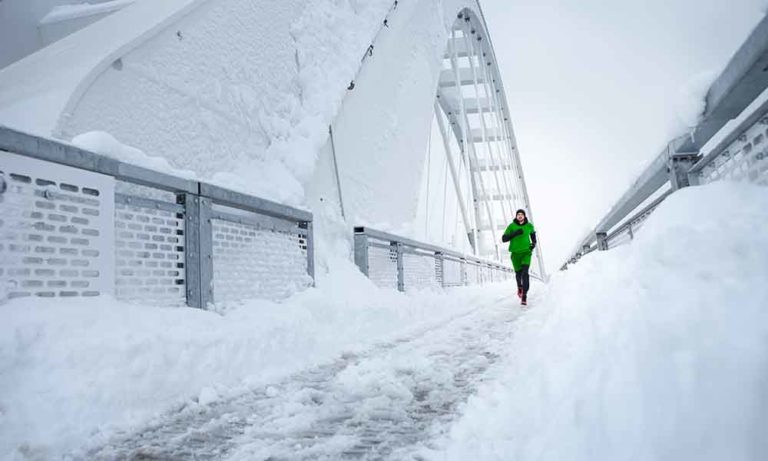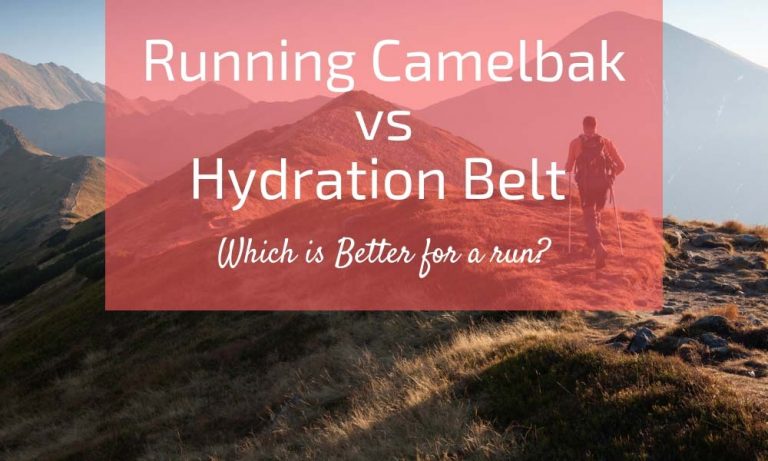Sparkling Water: Is It Good For Runners? Or Is It Bad?
Want to learn if sparkling water is good for runners? Is there any difference between plain old tap water and carbonated water for a runner?
Drinking water before, during, and after a run will help prevent dehydration and ensure you get enough fluids while exercising.
So, is sparkling water ideal for keeping those hydration levels in top shape for athletes compared to regular H2O? Let’s find out.
Should You Drink Sparkling Water Before Running?
While we wouldn’t recommend drinking it before running, beverages with carbon dioxide are often recommended as a post-run drink. Many athletes participating in long distance-competitions, such as marathons, will often opt for the carbonated kind when nearing the end of the course.
Minerals, such as potassium and magnesium, provide the body with electrolytes often found in soda drinks. Electrolytes are the best way to replenish hydration levels lost during exercise.
Still vs. Sparkling: Which Is Best For Hydration?
You’ll be happy to know that both count towards maintaining healthy hydration.
However, we wouldn’t recommend replacing regular water with carbonated long-term. Read on to find out why.
What Is Carbonated Water?
Water infused with carbon dioxide gas under pressure is carbonated. As a result of carbonic acid, tiny bubbles form, giving the liquid its bubbling appearance.
This bubbly drink is known as sparkling, soda, or fizzy water. Or club soda or seltzer. For a better taste, most carbonated sodas include salt, except seltzer.
Is Sparkling Water Good For You?
Aqua infused with carbon dioxide is a fantastic alternative to soft drinks, usually packed with chemicals we could never even begin to pronounce.
But is it all it’s cracked up to be?
It Can Cause Bloating
This is why we would advise you to only drink it after running.
While beverages with carbon dioxide are not high in sugars or chemicals like most soft drinks are, they are still carbohydrates. These bubbles often cause bloating in the stomach, which can be painful to run with.
This is especially important for those suffering from IBS (irritable bowel syndrome) as it can trigger and intensify symptoms.
Tooth Decay
This is more prominent when discussing flavored sodas. The CO2 used to carbonate the drink is highly acidic, which can cause tooth decay.
However, we would like to put emphasis on the word ‘can’ here because we don’t want to send you into a panic!
And you would have to drink a lot of the stuff before noticing signs of decay.
According to available research, carbonated soda and seltzer are generally acceptable for your teeth compared to sports drinks and sodas.
It’s important to note that some sparkling soda brands contain added sugars. These drinks are not just carbonated soda anymore. They are sweetened beverages. So remember, plain H2O is always the best choice for your teeth.
Carbonated Water And Young Athletes
For young athletes, sparkling water may displace more nutrient-dense drinks, like milk (which contains calcium) or orange juice (rich in vitamins). Another downside can be bloating or feeling uncomfortably full during exercise. That is why still water is recommended.
Some people worry that soda weakens bone density in young people. But carbonation has been eliminated as a cause of the problem. Most likely, the caffeine in cola and a reduction in calcium-rich beverages were to blame.
The Positives of Sparkling Water
After all that scaremongering, we’ll brighten things up and discuss some positive points.
Calorie-free
Yes, that’s correct. Sipping on bubbly H20 has no calories in it whatsoever.
This is good to know if you are on a weight loss journey or would like to substitute your regular fizzy soda drinks.
It Doesn’t Have To Be Boring
The sparkling mineral variety can often taste quite bitter if you are new to the stuff. So why not take some time to experiment with different flavors of bubbly drinks?
You could add slices of lime and lemon to create a taste of summer. Cucumber and strawberry pieces are another alternative if you want something more refreshing with a hint of sweetness.
The Bottom Line
Carbonated water is a good way to increase hydration levels when running, but should be consumed post-run.
Drinking it beforehand can lead to bloating and gas – something you probably want to avoid (especially the latter!). And you can avoid that by drinking flat water.
With that said, carbonated soda drink is an excellent alternative to sugary soda drinks and is fine to consume in moderation. Regular tap water is still the best bet.
But suppose you plan on running after a night out. In that case, sparkling water works well as it offers some anti-hangover benefits. Nutrients are replaced, and bubbles calm an uneasy stomach, relieving nausea.





